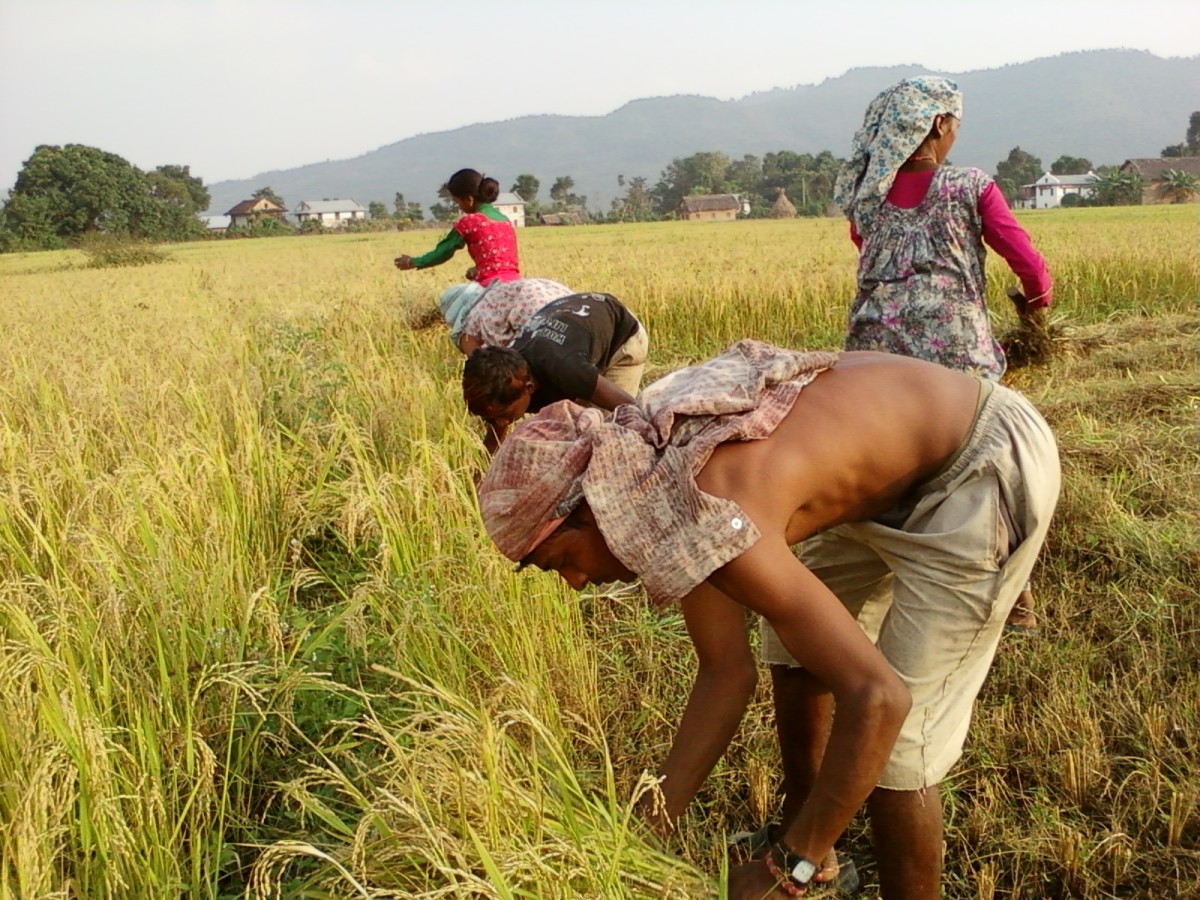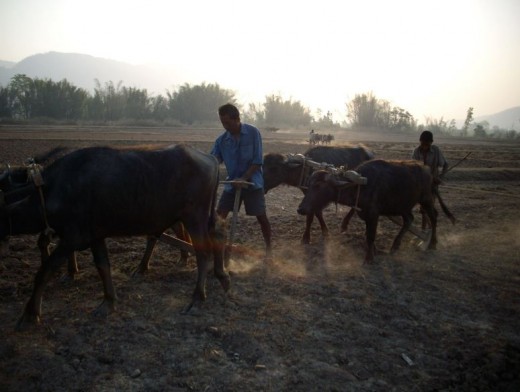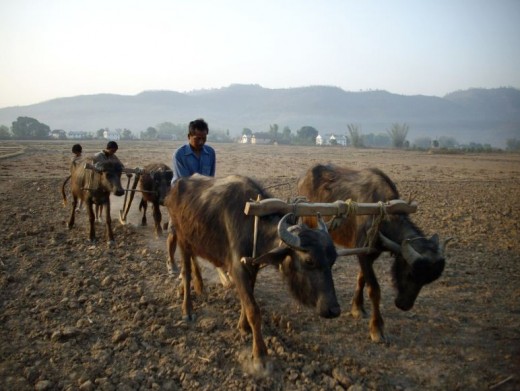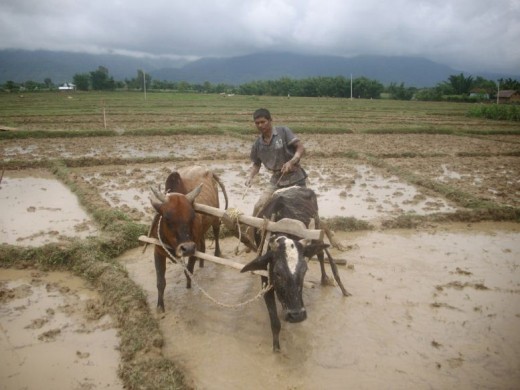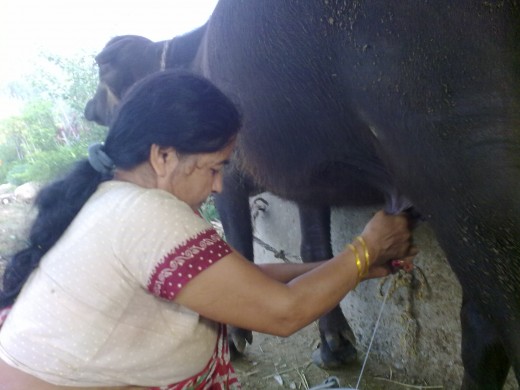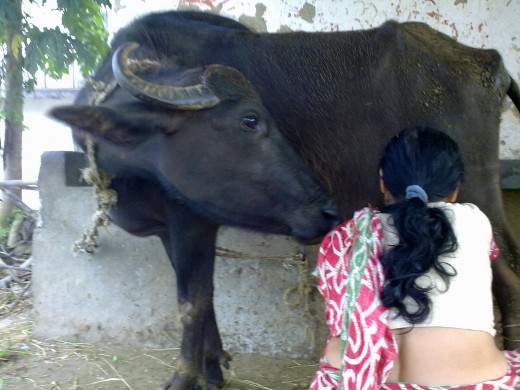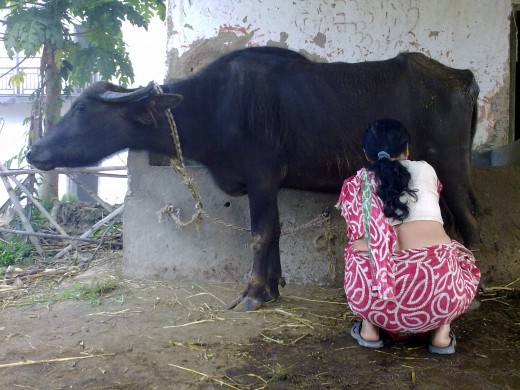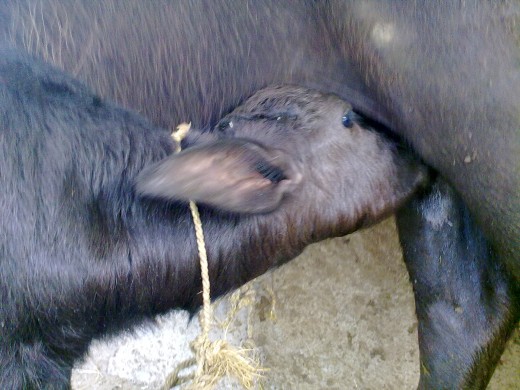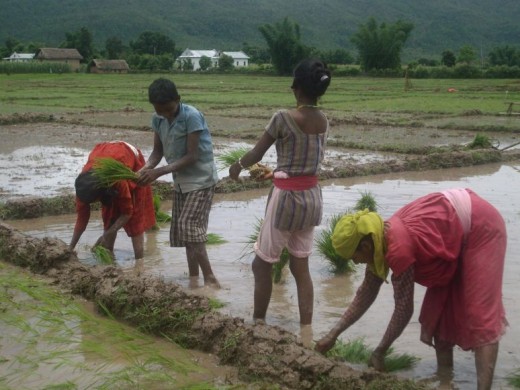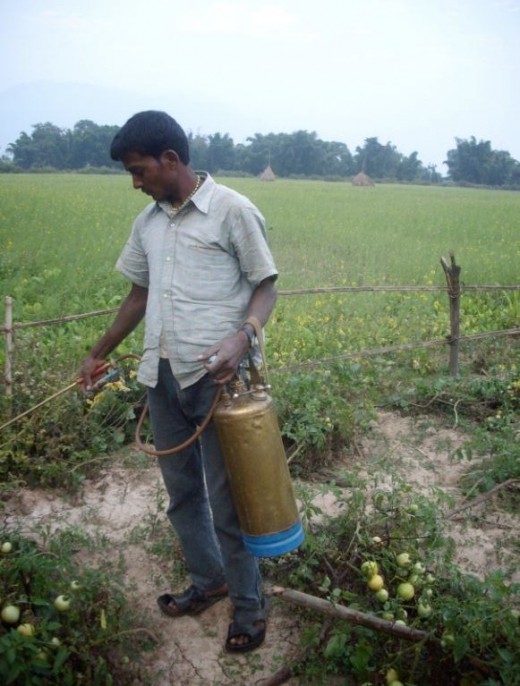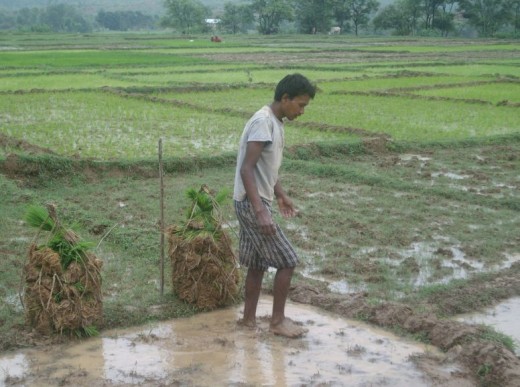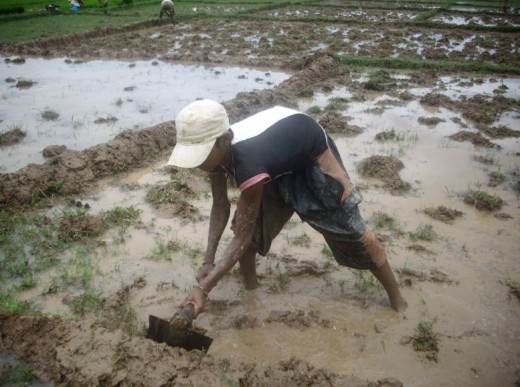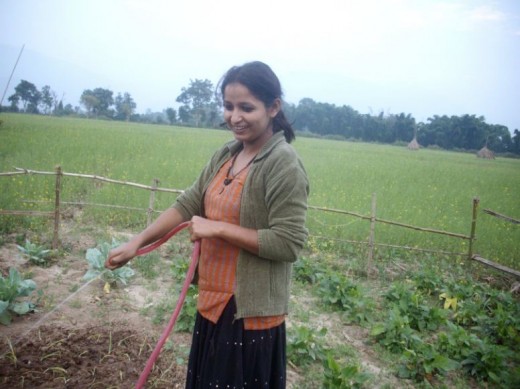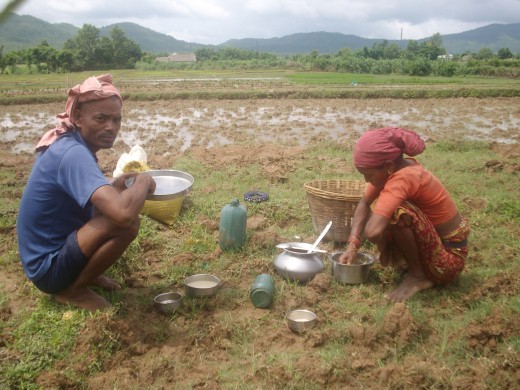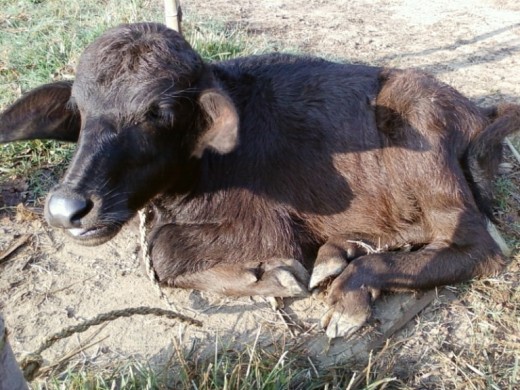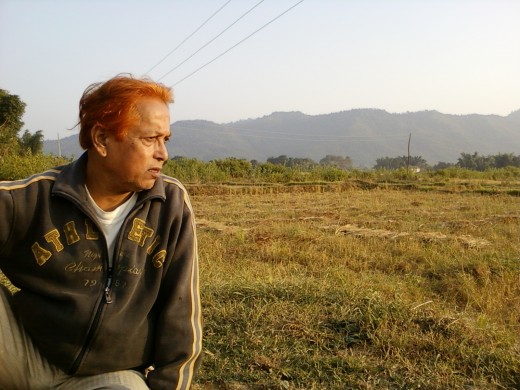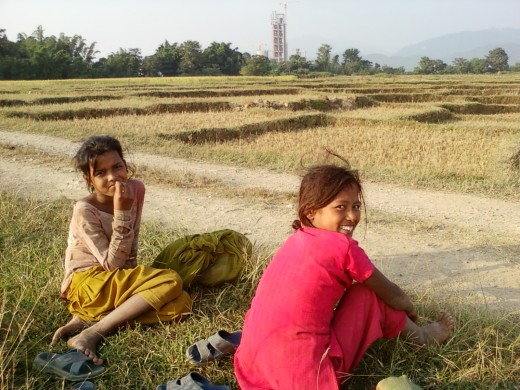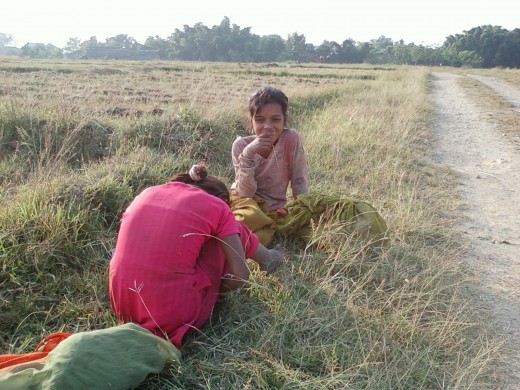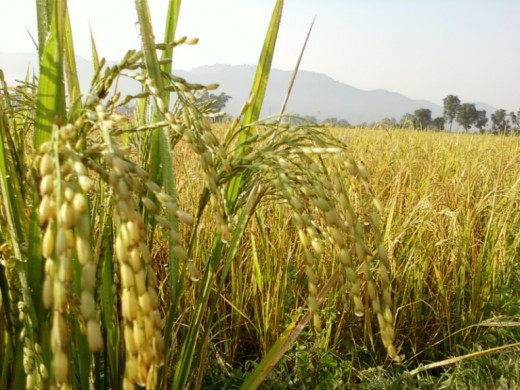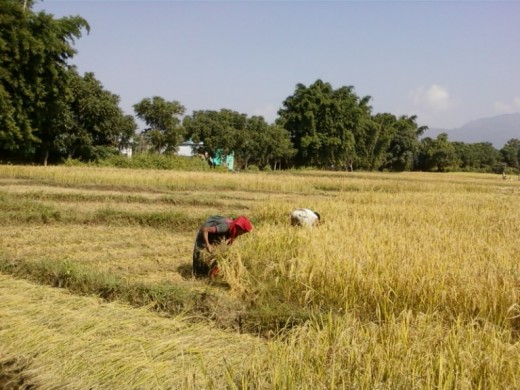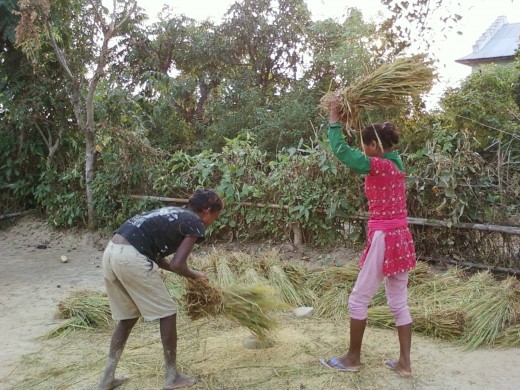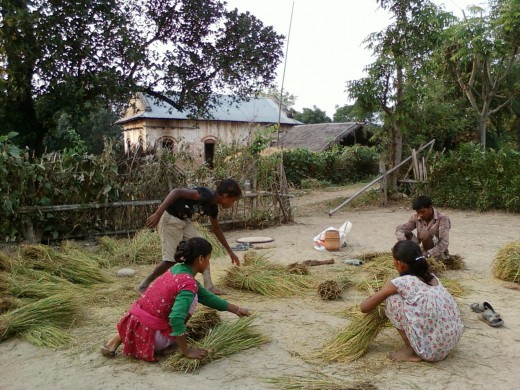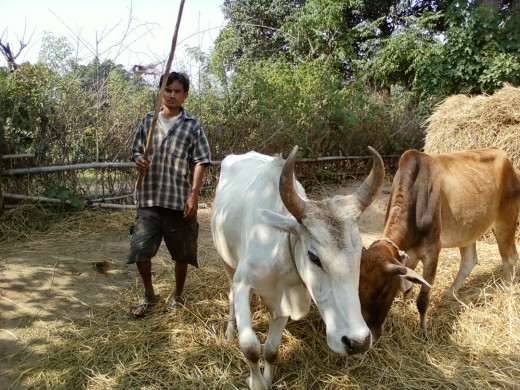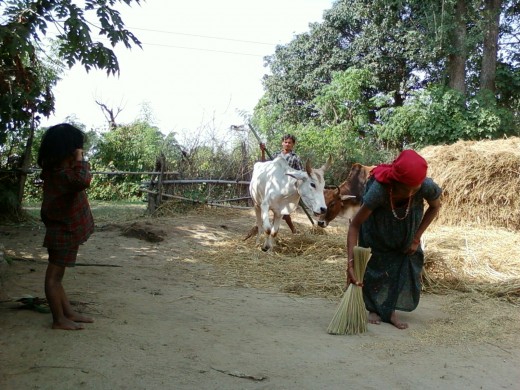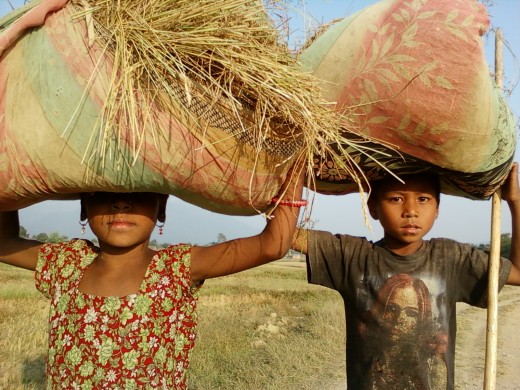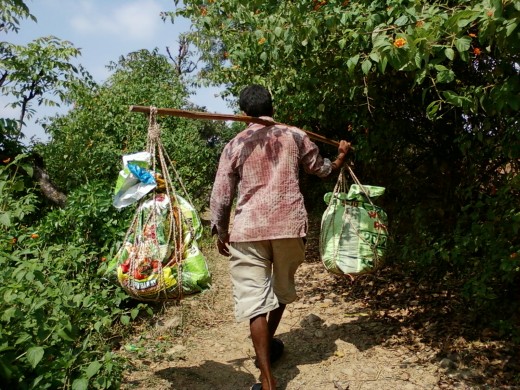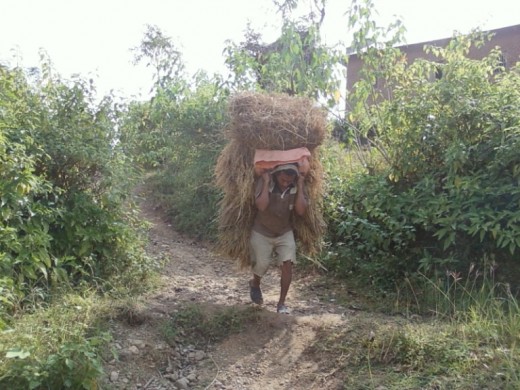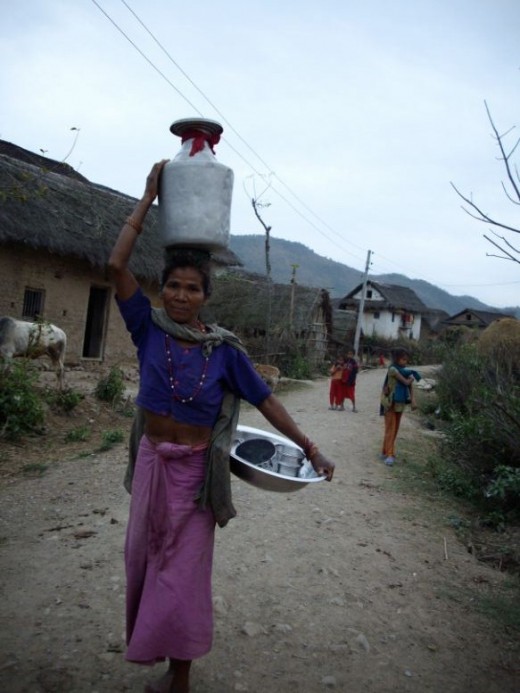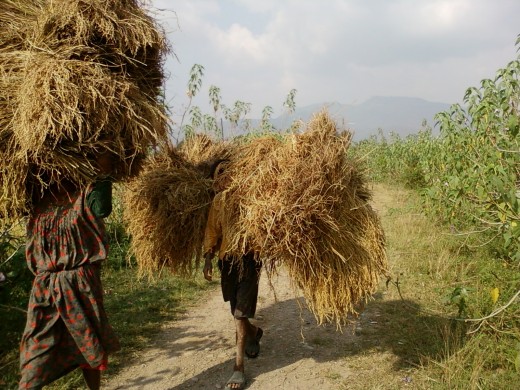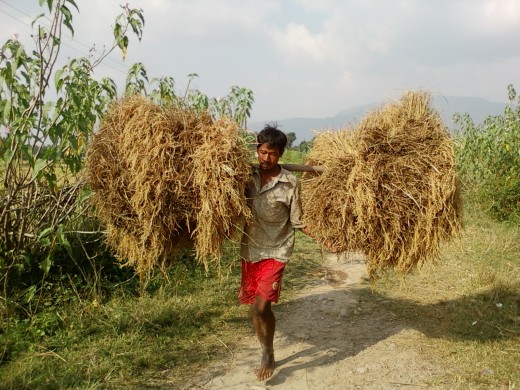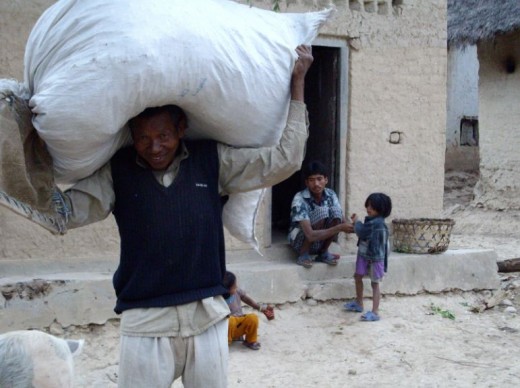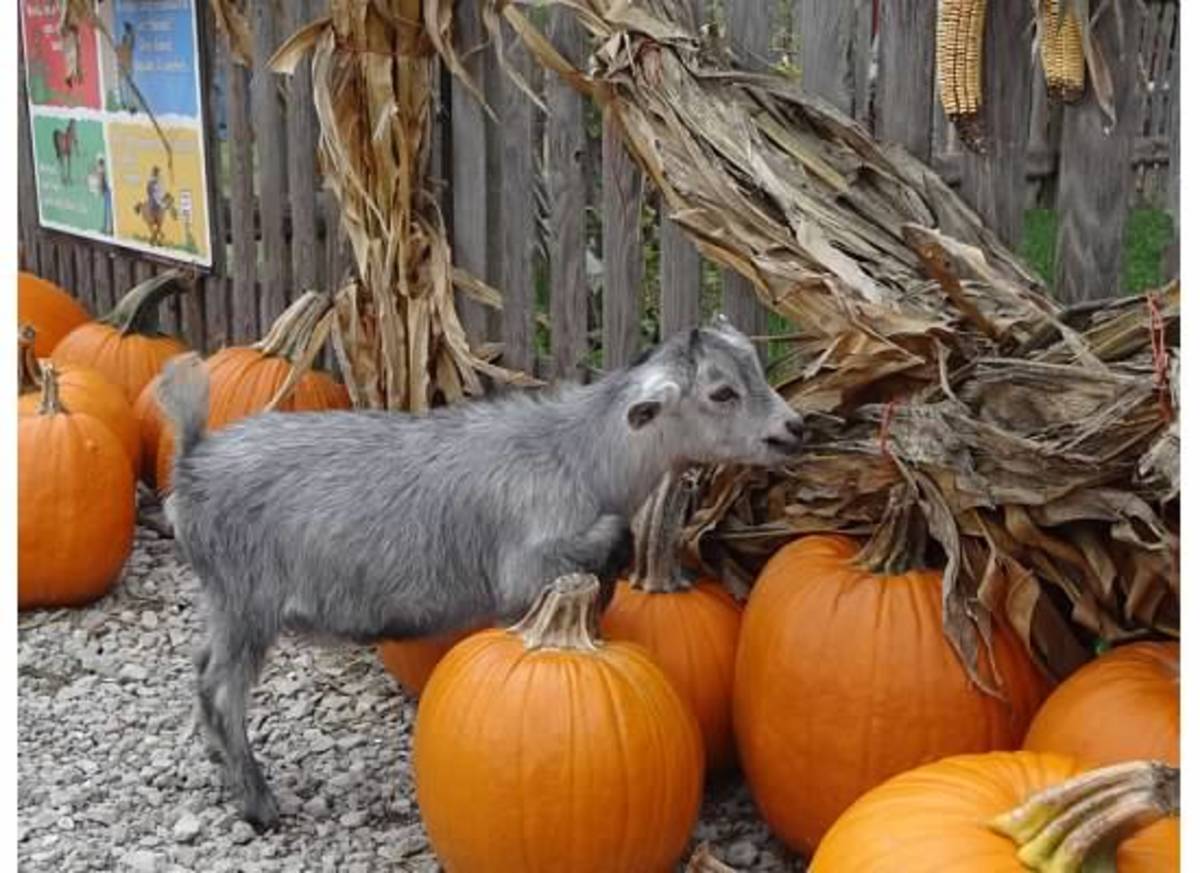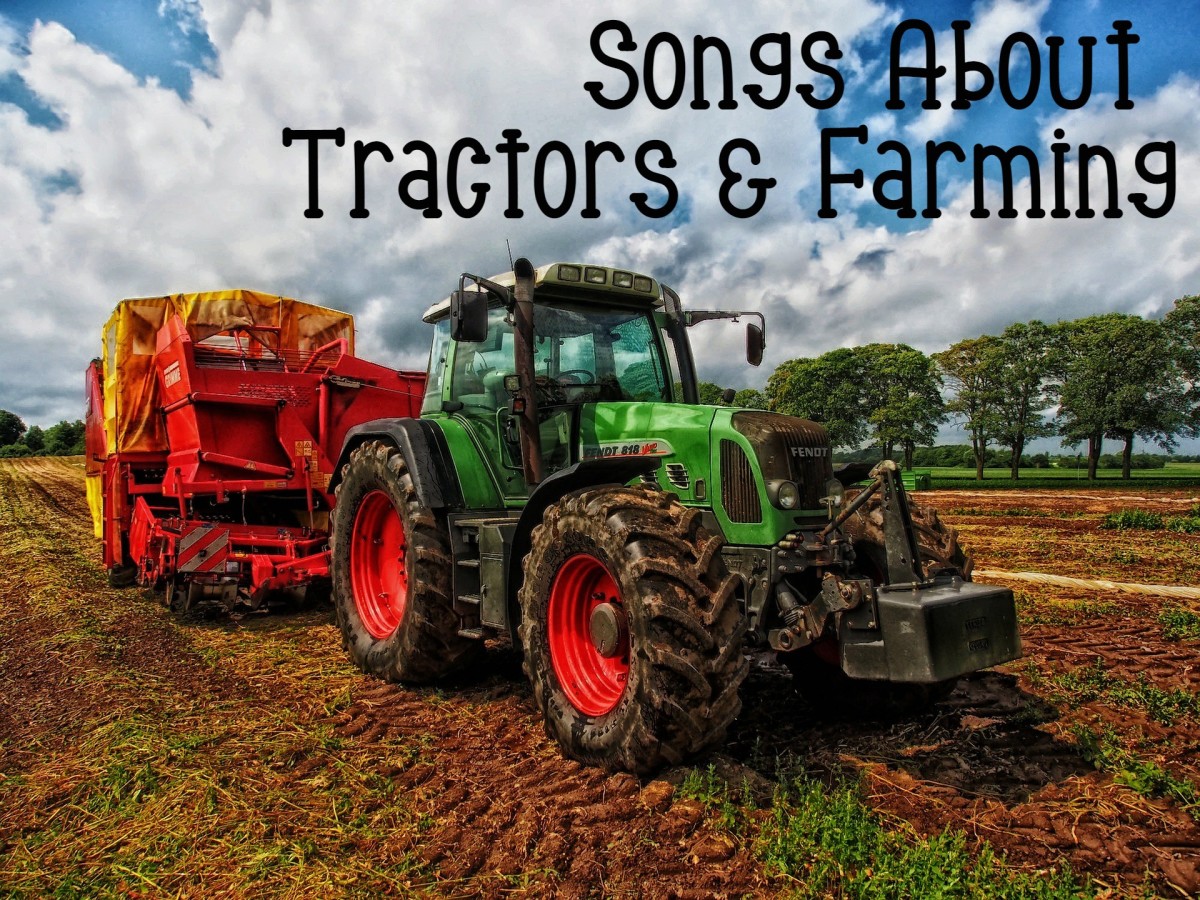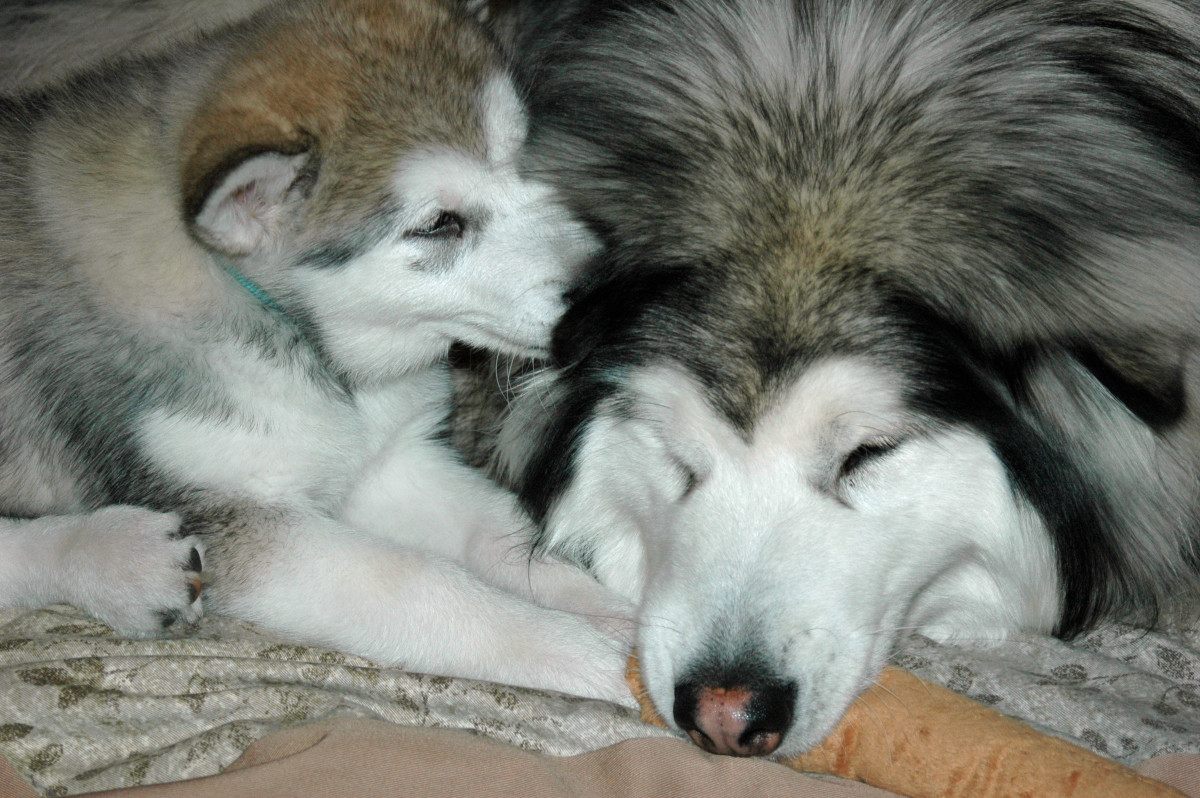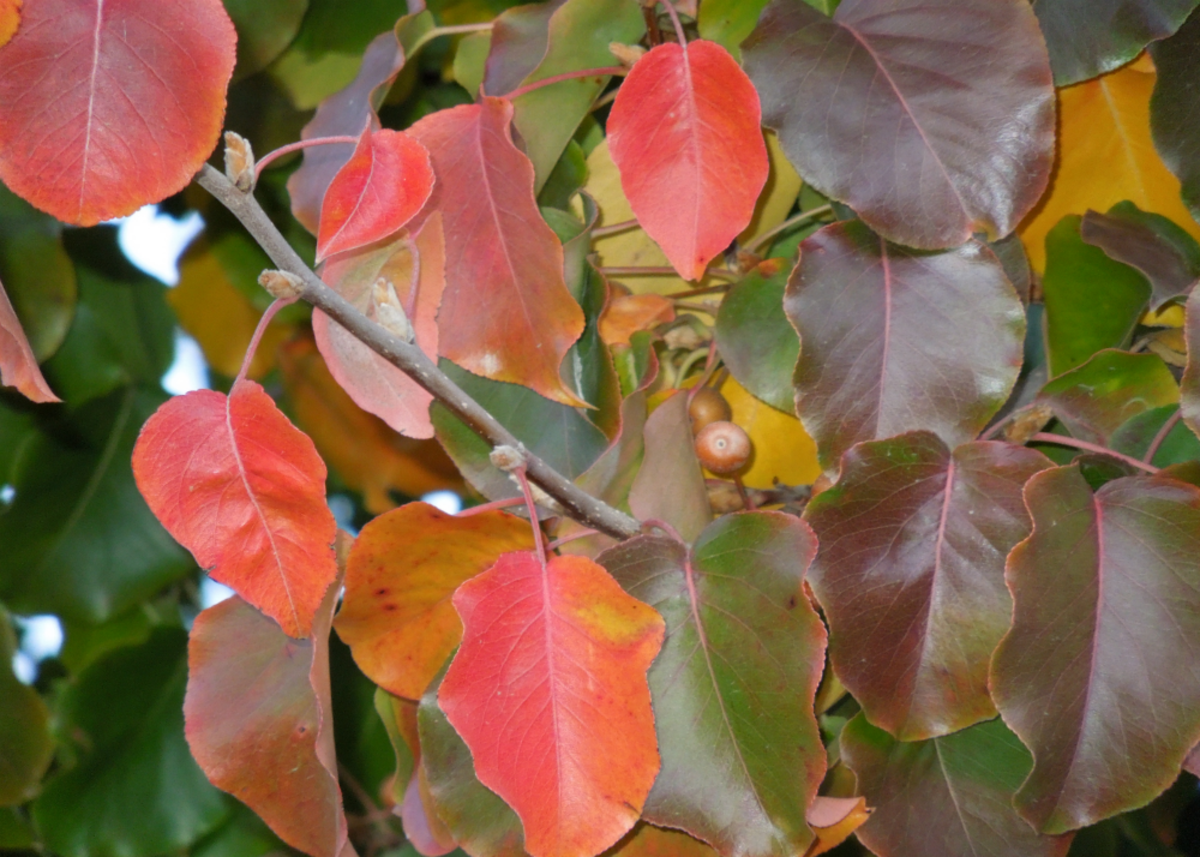Life in a Farm in Nepal
Plowing the farm
Click thumbnail to view full-size


Milking
Every morning and afternoon my mother hand milks our water buffaloes. When I’m in the farm I do it for her. I find a kind of pleasure while milking. In the morning at 5, when I open the barn's door and switch on the light, the mother and daughter are spontaneously awakened. They stretch their bodies and moo.
I ruffle the calf’s head. She is tied to a wooden pillar by a plastic rope. I free her; she hastens for her mother's teat. Mother is very obsessed with her daughter. She licks her daughter while the daughter sucks milk. In a short interlude, I strain the calf and tie her to the same pillar. She agitates and strives to reach her mother. Her titanic struggle is gone vain.
The mother tosses and turns her head towards me, she sniffs and looks satiated. I pat her and squat beside her hind legs. I wash her udder and gently rub it with butter. They are warm and thick. I place a bucket under her udder and start pulling the teats with my thumb and index finger. Milk seeps out and drops into the bucket. I milk her three teats, the fourth is for her daughter. After milking, I pat and free the calf. She hastens towards her mother and looks satisfied. Her agony and exasperation has ended. Now she can suckle as long as she likes.
Hand Milking
Click thumbnail to view full-size



Farming
Agriculture technique in Nepal has not improved in two thousand years. (It is believed rice has been farmed since 2000 years). The same kind of wooden plow pulled by oxen or water-buffalo and driven by human is used in farming. No surprise, why agrarian economy imports food.
It is not easy to industrialize agriculture in Nepal. Gas is very costly, in fact, there is always a kind of energy crises in Nepal. Tractors and other machinery have to be imported, and people are poor.
People in agrarian Nepal live close to the earth, bound to plants, which is natural, almost predetermined, a reality that has not changed with time. They move with seasons. Rain is planting of rice, autumn is festival time, winter is harvesting. In summer, they sell grains, making money to get going for the entire year.





Delightful languor
Click thumbnail to view full-size




Photographer’s note
It’s not that I hate being photographed while working. I just make sure that no one touches my camera. More than posing for camera clicks, I love shooting. Everyone is not camera friendly. I let it go when people hid their faces, actually most of the time I don’t want to capture their faces, I want to portray their life and stories. But sometimes they scold me. You don’t have any work, they yell. “This is my work,” I try to assure them. “Your work is bothering us,” they snap.
Usually I don’t ask permission, I don’t even inform them that I’m taking their pictures. When they are in jolly moods they want to see how they look in pictures. Some of the people are quite embarrassed when I catch them working. They ask me to take their photographs when they are in clean clothes. It is not always easy to shoot people. But I love my work, telling stories in pictures.
Harvesting
Click thumbnail to view full-size
